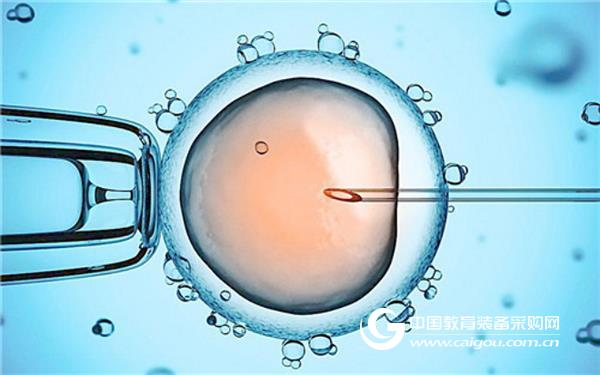Guide In vitro fertilization (IVF) is required to ensure that embryos with normal chromosomes are obtained. Usually, embryos need to be transplanted after pre-plant genetic diagnosis without abnormalities. However, research teams from the Center for Precision Medicine Genetic Analysis (GENOMA) and the European Hospital Reproductive Center have recently confirmed that chimeric embryos (cells with chromosomal abnormalities in the embryo) also have the opportunity to successfully transplant, conceive, and ultimately deliver a healthy baby ( The chromosome is normal). "Chimeric embryos also have the opportunity to successfully implant into the mother's uterus and give birth to a healthy next generation!" This is the latest research report from the Research Center of the Center for Precision Medicine Genetic Analysis (GENOMA) and the European Hospital Reproductive Center at the 33rd Annual Meeting of the European Society for Human Reproduction and Embryology (ESHRE). Since the first test-tube baby was introduced in 1978, assisted reproductive technology has developed rapidly, bringing new hopes for many families to regain healthy babies. According to statistics, the number of babies born globally through IVF technology has exceeded 5 million. In vitro fertilization (IVF) is required to ensure that embryos with normal chromosomes are obtained. Usually, embryos need to be transplanted after pre-plant genetic diagnosis without abnormalities. However, Francesco Fiorentino of the GENOMA Molecular Genetics team and the team spoke with data indicating that chimeric embryos (cells with chromosomal abnormalities in the embryo) also have a chance to successfully transplant, pregnancy, and ultimately deliver a healthy baby (normal chromosomes). Chimeric embryos can also be used for transplantation In November 2015, the Fiorentino team first mentioned this possibility in a letter to the New England magazine. At the time, they examined 18 in vitro fertilized embryos and found no embryos with completely normal chromosomes. In the end, they successfully gave birth to 6 healthy babies after receiving a chimeric embryo transfer. In IVF technology, chimeric embryos are generally not used for transplantation because they are considered abnormal. Even the Fiorentino team has emphasized that "chimeric embryos reduce the success rate of IVF technology." Now, the Fiorentino team has expanded the research scale and found a key "bottom line": the success or failure of transplanting a chimeric embryo depends on the extent of the embryo's chromosomal abnormalities. They recruited 73 women who received IVF, but their embryos were not normally available for transplantation. The test found that each patient had a chimeric embryo. The research team transplanted these chimeric embryos. These embryos are divided into two broad categories based on the degree of aneuploidy: >50% or <50%. The results showed that the probability of successful fertility after chimeric embryo transfer with a chromosomal abnormality rate exceeding 50% was 16.7%, with a 10% abortion rate. For chimeric embryos with chromosomal abnormalities below 50%, the probability of normal fertility is 39.5%, and the abortion rate is reduced to 7%. This means that chimeric embryo transfer preferentially selects embryos with a low degree of chromosomal abnormalities. Why do chimeric embryos have a chance to have a normal pregnancy? Why are embryos with abnormal chromosome numbers (aneuploidy) able to “self-correct†and develop into healthy newborns? Dr. Fiorentino said that one of the reasons is that cells with abnormal chromosomes in the embryo face growth disadvantages or may be due to apoptosis. And gradually die. This leads to a reduction in the number of abnormal cells, thus ensuring the normal development of the fetus. Euploid embryos are preferred, and chimeric embryos are "special" Dr. Fiorentino emphasized that a chimeric embryo can be thought of as a "special class" with potential for implantation and development, between embryos with normal and completely abnormal chromosomes. "The euploid embryos have a higher implantation success rate than chimeric embryos. Based on this, the selection of chimeric embryos must be based on the selection of euploid embryos. The euploid embryos. It indicates a higher implantation success rate and a lower risk of miscarriage, which is the preferred choice for transplanting embryos during IVF." Shanghai Chuangsai Technology has excellent performance, interleukin cytokines, fetal bovine serum, electrophoresis equipment scientific instruments, raw material drug standards, chemical reagents, cell culture consumables, Shanghai Chuangsai, mass products special promotions, welcome to inquire! When it comes to decorating a bathroom, many people often neglect the doors. That`s such a real mistake since the doors can make a huge difference. To get an outstanding result, you must include aesthetic and practical perspectives in the design of bathroom doors. Moreover, the materials range drastically from wood to steel. So, pick the best one that articulates your taste. Bathroom Doors,Modern Bathroom Doors,Waterproof Bathroom Door,Bathroom Door With Glass HOPE IKEA , https://www.skywardrobes.com
Successful pregnancy of chimeric embryos? "bottom line" depends on the degree of chromosomal abnormality